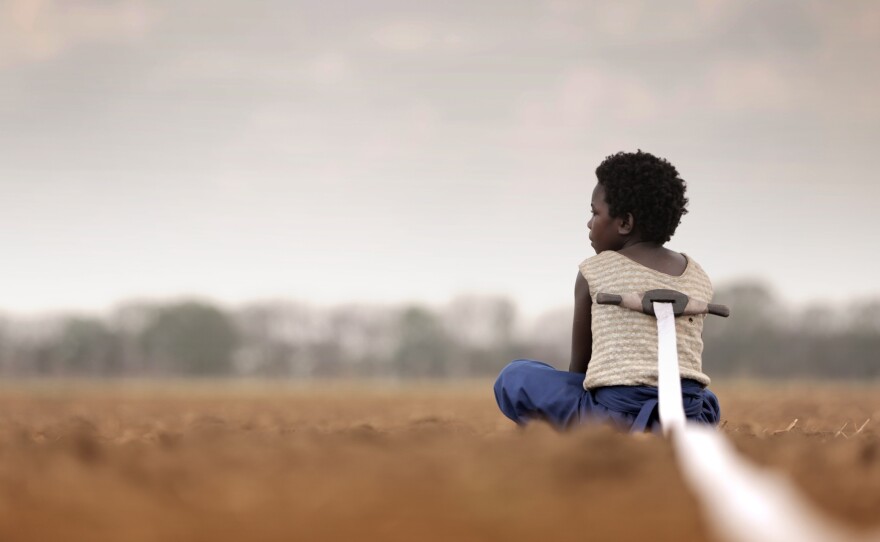Companion viewing
"Black Girl" (1966)
"Xala" (1975)
"The Witchfinder General" (1968)
"The Witch" (2015)
We do not get many films from Africa but what’s even more rare is a debut work as assured and beguiling as “I Am Not a Witch” opening this weekend at Digital Gym Cinema.
You don’t get many opportunities to see a film where you feel like you are witnessing the birth of an important new talent but “I Am Not A Witch” is one such film.
I saw “I Am Not A Witch” back to back with the remake of “A Star is Born,” starring Bradley Cooper and Lady Gaga. The contrast could not be more stark. “A Star is Born” is Hollywood recycling its ideas and making a calculated bet that something familiar and previously popular will be welcomed by audiences yet again. It’s an example of coloring safely within the lines of a very formulaic story. It’s not that it’s a badly made film -- the performances are both appealing and it’s professionally crafted – but it’s just predictable at every turn.
“I Am Not A Witch,” on the other hand, doesn’t just boldly color outside the lines, it simply refuses to acknowledge that there are any lines it needs to pay heed to.
Writer-director Rungano Nyoni was born in Zambia but grew up in Wales. Her film grew out of a visit she made to a “witch camp” in Ghana, a place where women accused of witchcraft are forced to live.
Nyoni's film shows us a little girl who, after a single seemingly innocuous incident, is accused of witchcraft by some of the villagers. She neither confirms nor denies the accusation but a local official has a ritual performed and determines that she is indeed a witch. The young girl now faces a choice: live her life as a witch tethered to an anchor by a ribbon and put on display at a witch camp or cut the ribbon and be transformed into a goat. She chooses to be tethered and is given the name Shula (played by the mesmerizing Maggie Mulubwa) as she is welcomed into the segregated society of witches. But soon she finds herself being paraded in front of TV cameras and tourists.
Accusations of being a witch are a serious matter in countries like Ghana and Zambia. It is easy to blame some kind of black magic for any misfortune that might befall you from losing your crop to catching a cold. Then women – especially women who do not have men to protect them – can be easy scapegoats. Through the centuries women have been accused of sorcery and witchcraft, and the punishment they received was as much about a fear of the supernatural as it was about keeping women in line.
By focusing on the notion of women and witches, Nyoni reminds us of a whole history of oppression that runs straight through to the present day. These feminist themes are nothing new but what is astonishingly fresh is the way Nyoni goes about addressing them. Her visual style is enthralling and her shot composition is breathtakingly poetic.
She addresses questions of power, oppression, superstition, and tradition. She roots the story in real facts but then also takes leaps of fancy to create a film that develops its own brand of magical realism. It’s a brilliantly confident work that finds comic absurdity amidst tragedy. It also dares us to laugh and cry within the same breath. There are moments that feel almost Monty Python-esque as the witches are shown off to tourists and exploited by the government. But at other times the film has a heartbreaking poignancy as it makes us feel the tug of that ribbon on Shula, holding her back from all the potential we feel is bursting inside her.
“I Am Not A Witch” is a film of beauty, grace, deep humanity, and fierce intelligence. Nyoni’s ability to craft such a multi-layered film and complex film is simply spellbinding.






